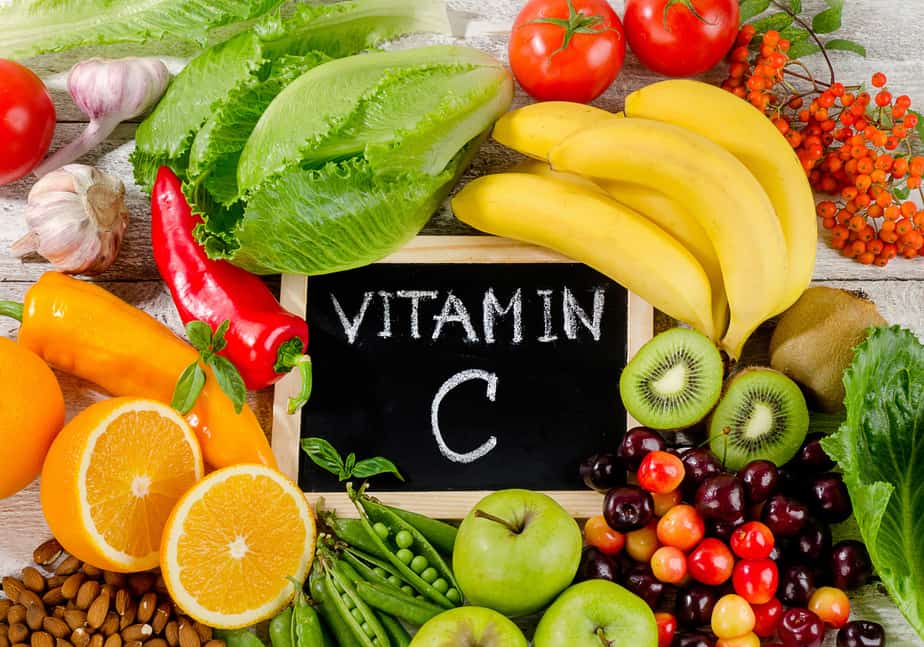Vitamin C: Amazing Benefits for Your Body (and Why Your Eyes Will Thank You)
Let’s cut to the chase: Vitamin C isn’t just the stuff you chug in orange juice when you feel a cold coming on. Nope—this antioxidant powerhouse is like the Swiss Army knife of nutrients, tackling everything from glowing skin to (wait for it) keeping your peepers in top shape. And since we’re all about seeing life clearly here at Liberty Laser Eye Center in Vienna, Virginia, we’ll toss in some friendly advice about why pairing your Vitamin C obsession with regular eye care is a genius move. Ready to geek out? Let’s go.
Why Vitamin C is a Total Game-Changer
We’ve all heard the basics: Vitamin C boosts immunity, fights free radicals, and keeps collagen production humming. But here’s the kicker—it’s also a VIP for eye health. Studies show it helps protect against cataracts and age-related macular degeneration. Think of it as sunscreen for your eyeballs. (Okay, not literally—but you get the idea.)
Pro Tip: Pair your daily Vitamin C with an Annual Eye Exam at Liberty Laser Eye Center. Because even superhero nutrients need backup from the best Lasik surgeons in Washington DC. Just saying.
How Vitamin C Loves Your Eyes (Yes, Really)
Collagen for the Win
Your cornea? It’s mostly collagen. Vitamin C helps maintain its structure, which is kinda crucial if you enjoy, y’know, seeing things. Dry eyes? Inflammation? A solid dose of C can help soothe those irritants.
FYI: If you’re battling chronic dry eye, our Dry Eye Treatment in Vienna, Virginia, pairs perfectly with a nutrient-rich diet. We’re all about that synergy.
Antioxidants vs. Blue Light
Staring at screens all day? Vitamin C teams up with other antioxidants to combat blue light damage. It’s like a tiny shield for your retinas. Still, maybe give your eyes a break and Google “Lasik recovery time” instead of TikTok-ing until 2 a.m. Just a thought.
Other Body Bonuses You Can’t Ignore
- Skin Glow: Collagen production = fewer wrinkles. You’re welcome.
- Iron Absorption: Pop some C with your spinach salad to fight anemia.
- Heart Health: Lower blood pressure, reduce heart disease risk—it’s basically a cardiologist in vitamin form.
Hot Take: We’d argue healthy eyes enhance all these perks. Imagine reading a nutrition label clearly after Topography-Guided LASIK Surgery. Life-changing.
How to Get Your C Fix (Without Mainlining Oranges)
Foods That Pack a Punch:
| Source | Mg per Serving | Pro Tip |
|---|---|---|
| Guava | 377mg | Tropical, sweet, and wildly underrated. |
| Bell Peppers | 152mg | Red ones have 3x more C than oranges. |
| kale | 80mg | Toss it in a smoothie—you won’t taste it. |
| Strawberries | 89mg | Perfect post-Lasik recovery snack. |
Supplements Work Too:
If you’re not a kale enthusiast, no judgment. Just grab a quality supplement. (But maybe skip the gas station gummies.)
Eye Care Meets Vitamin C: The Ultimate Power Couple
Here’s the deal: Even with all the C in the world, your eyes need professional TLC. That’s where we come in. At Liberty Laser Eye Center, just outside Washington DC, we offer:
- Lasik eye surgery: Ditch glasses in under 15 minutes. Mic drop.
- PresbyLASIK Surgery: Because reading menus in dim lighting shouldn’t be a sport.
- Advanced PRK Surgery: Perfect for thinner corneas.
- Corneal Cross-Linking: Stabilizes Keratoconus like a boss.
Why Choose Us?
- Wavefront Analysis tech for stupidly precise results.
- Affordable options (because “price” shouldn’t make you sweat).
- 98% success rate—yeah, we’re bragging a little.
Got Astigmatism, Nearsightedness, or Farsightedness? We’ve got your back. And if you’re Googling “Lasik doctors near me,” spoiler: We’re the closest top-rated clinic for most Northern Virginians.
Your Vitamin C Questions—Answered
1. Can Vitamin C replace my eye surgery?
Nice try. while it’s great for prevention, it won’t fix Presbyopia or reshape your cornea. For that, you’ll need our laser eye surgery expertise. (We’re hilarious and honest.)
2. How much Vitamin C is too much?
Stick to 2,000mg/day unless you want a one-way ticket to Tummyache Town.
3. Does cooking destroy Vitamin C?
A bit, but lightly steaming veggies preserves most of it. Or just eat a strawberry. Laziness wins sometimes.
4. Is Lasik worth the cost?
IMO, yes. Imagine waking up and seeing your alarm clock without fumbling for glasses. Priceless. Check our reviews if you’re skeptical.
Final Thought: See Clearly, Live Brightly
Vitamin C is a rockstar, but let’s not forget the bigger picture: Healthy eyes let you enjoy all of life’s vibrant moments. Whether you’re juicing kale or considering Topography-Guided LASIK Surgery, invest in your vision.
Shameless Plug Alert: If you’re in Washington DC or hunting for the nearest Lasik eye surgeons with a knack for perfection, swing by Liberty Laser Eye Center. We’re friendly, affordable, and really good at making “20/20” happen.
Ready to level up? Schedule that Annual Eye Exam or laser surgery consult today. Your eyeballs (and your future self) will high-five you.
Liberty Laser Eye Center – Because “near me” should mean “best nearby.” 😎


